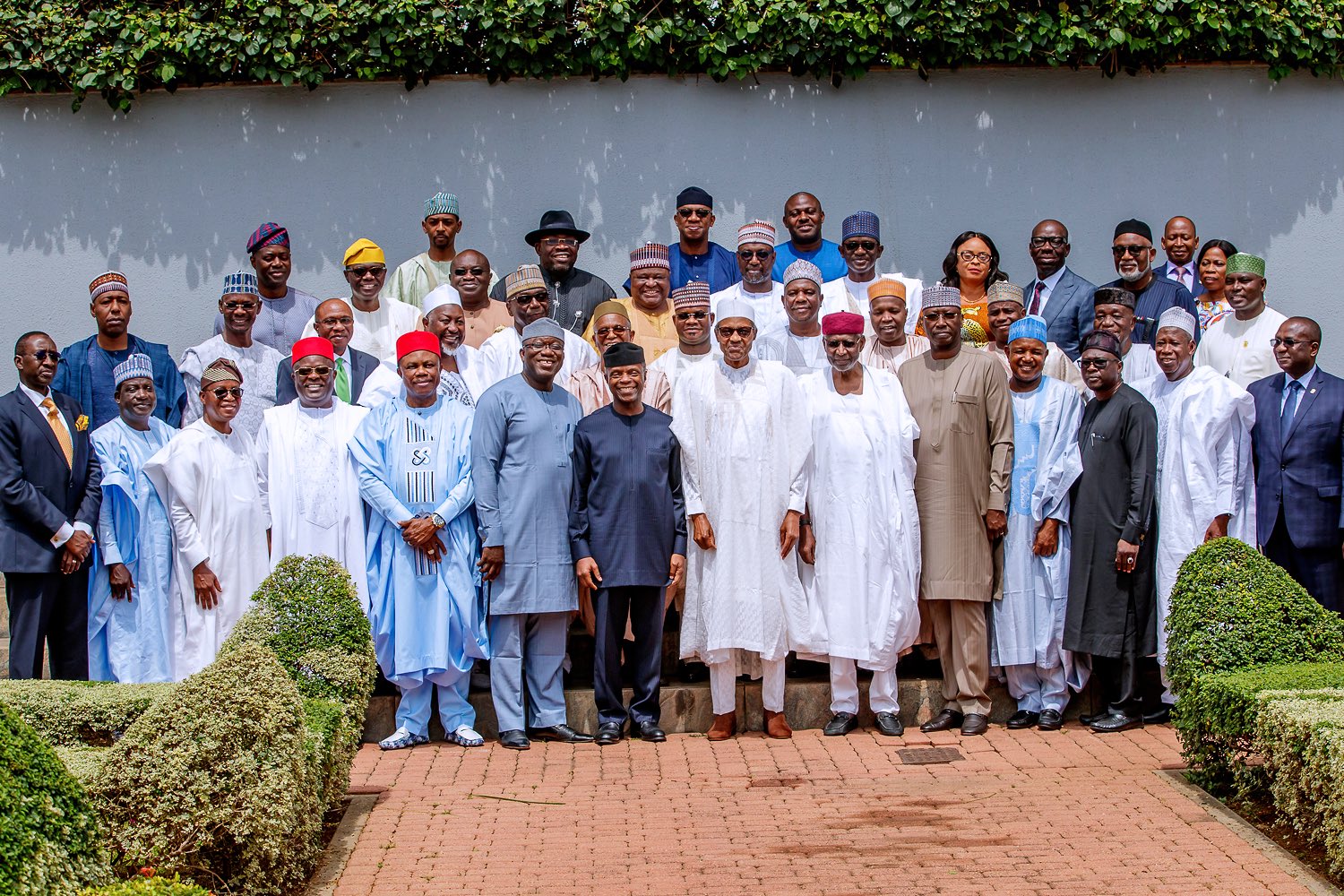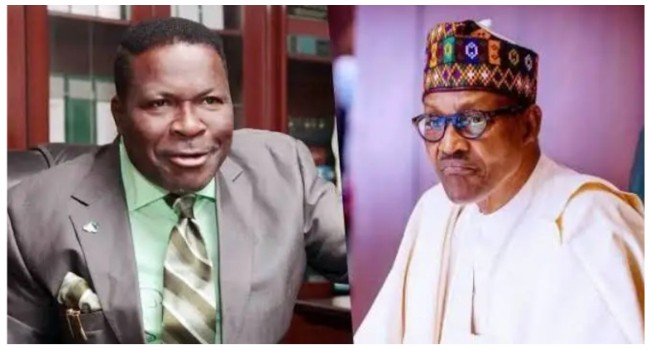Economy
Buhari inaugurates National Economic Council for 2nd term

President Muhammadu Buhari on Thursday, inaugurated his National Economic Council (NEC) for the next four years.
In a statement after the inauguration ceremony at the state house, Abuja that had the Vice president, Yemi Osibanjo, state governors and other top officials of the last term in attendance, the president called for deepening of collaboration between state and federal governments to tackle the economy and security challenges facing the country.
“Today I inaugurated the National Economic Council (NEC), for the next four years. The Federal and State Governments must deepen collaboration on security, education, health and agriculture, to make a difference in the lives of our people,” Buhari said.
“I made it clear that I would like to see every Governor rise from today’s NEC meeting and rally their LGA Chairmen towards ensuring that our schools offer the right opportunities and provide the needed materials and teachers for basic education, at the minimum.
“On our own part as the Federal Government, we will continue to invest in the school feeding programme, and extend it to all the States, and we will also assist States as much as possible to access the counterpart funding provided by UBEC for the development of basic education.
“In healthcare, as you all know, the Federal Government is now implementing the Basic Healthcare Provision Fund. Sustained implementation will help us increase the share of Nigeria’s population covered by primary healthcare, from the 12.6 percent at present, to 65 percent by 2023.
“And while the Federal Government has primary responsibility for security and will not shy away from it, the States also have a critical role to play; in particular by assisting and cooperating with the security agencies.
“State Governors and Governments also have a responsibility to keenly pursue policies and programmes that forestall communal, tribal, religious & societal conflicts; and that promote education, information, dispute resolution, vocational training and youth employment.”








